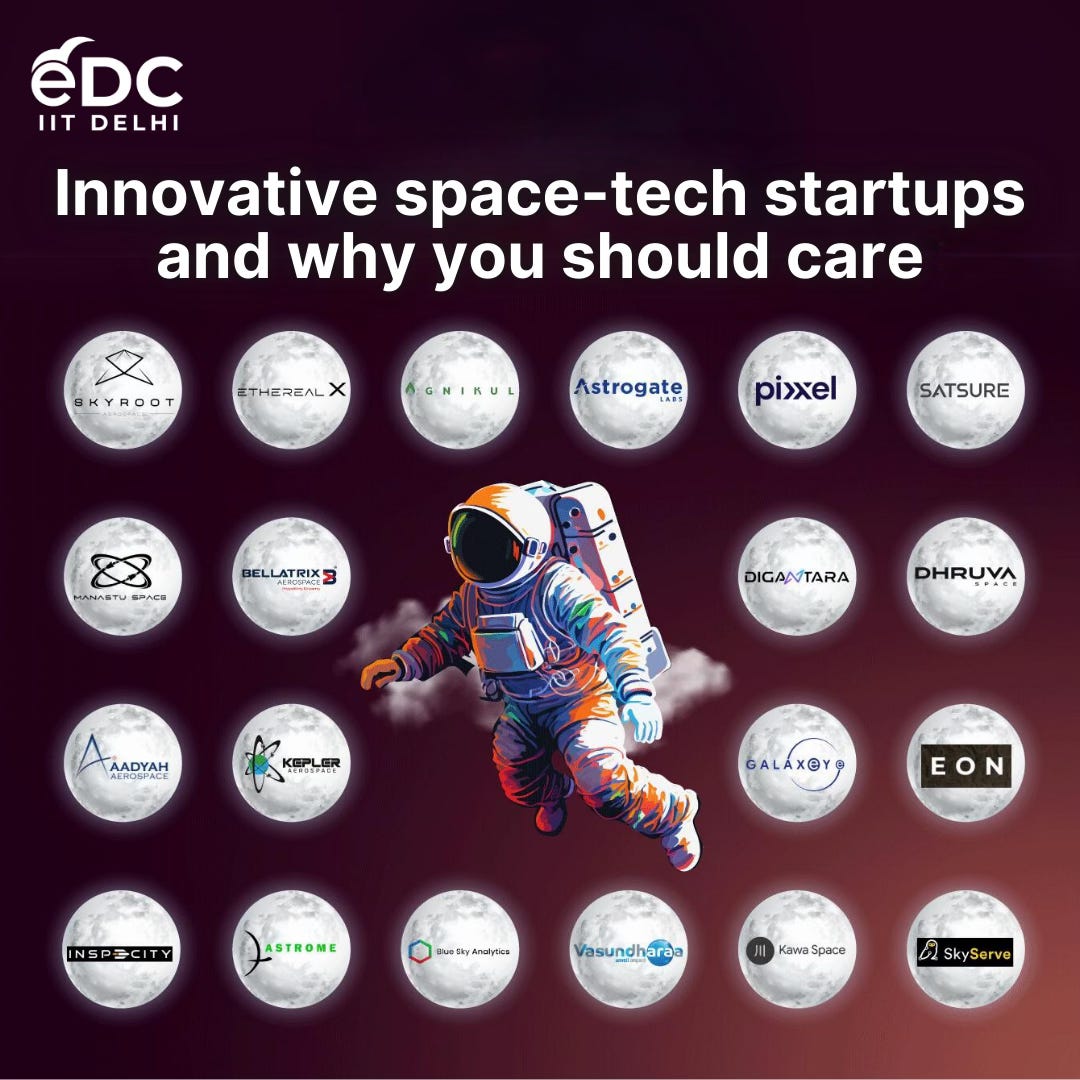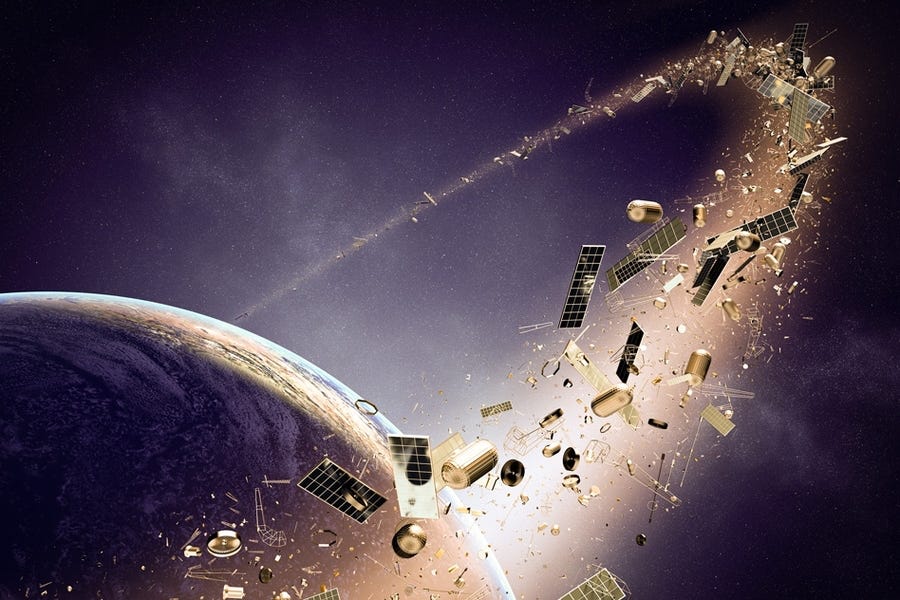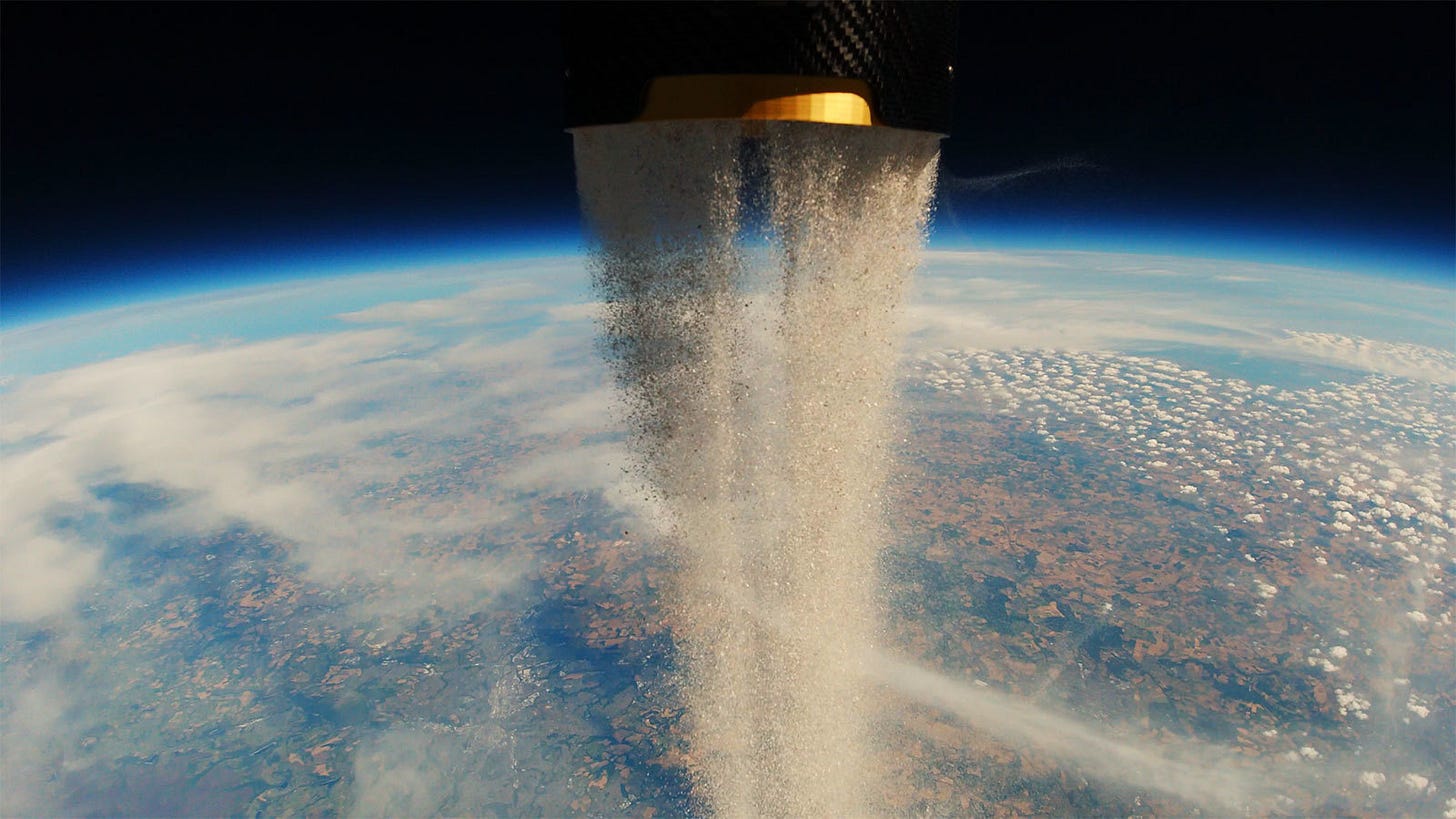Almost a decade after watching Matt Damon trying to survive Mars on screen, people still think investing in space is equivalent to throwing all your money away. They are not to be blamed for this opinion, after all, it is very daunting to take your savings and put them in the middle of nowhere,quite literally . What’s the first thing that comes to mind when you think about space tech? Space missions, satellites, mining, Elon Musk. What can you really try to achieve in space, except sitting in a box while it goes in circles about a massive rock? Turns out, there’s much more you can try your hand at. This article will not tell you about the next NASA mission, or a new launch propulsion system. It will take you through new (seemingly strange) space-tech startups trying to create a marketplace there, just like the one on Earth.
Space farming and Biotech
Space farming is not a foreign concept to us. When you are actively trying to make a home somewhere, it is not unnatural to look for food options. In space, owing to the lack of convenience stores, we would have to grow our own food. However, there is another incentive to do this : innovations in space farming can lead to developments in agriculture here on Earth. Global food shortages and environmental challenges could be faced with the ideas developed in space agriculture.
Space-based biotech research, like growing organs and tissues in zero gravity, could lead to medical breakthroughs. Microgravity environments allow scientists to study biological processes in new ways, which could possibly lead to progress in regenerative medicine here on Earth.
For long-term space missions to Mars or other planets, being able to grow food in space is not just a luxury, it’s a necessity. Developing this technology lays the groundwork for a potential future colonisation of space (with vibrant grocery stores).
Aleph Farms, which was originally focussed on lab-grown meat on Earth, is expanding its vision to include cultivating meat in space. By using animal cells, they aim to grow beef steaks in a microgravity environment, mainly to provide for astronauts.
Redwire Space is one of the pioneers of space-based bioprinting technology. Redwire's BioFabrication Facility on the International Space Station (ISS) is being used to research how to create human tissues and organs in microgravity
Space Tango, already a leader in microgravity research, develops automated platforms that allow for biological experiments in space. Their work includes growing plants and studying cell behaviour, with applications ranging from improving agriculture on Earth to supporting long-term space missions.
Space debris recycling
Do you ever think about all that space junk floating around, left to nobody? Turns out there are people who have started to do something about it. There are startups which try to develop methods to recycle and repurpose this space debris into something useful. Defunct satellites, spent rocket stages and fragments from collisions are a growing threat to astronauts and future space missions. Instead of letting valuable materials float around uselessly in space and pose such threats, these startups can reclaim them for future use. This space is undergoing major growth, and is a huge step towards sustainability.
Cislunar Industries is working on building space-based foundries to process and recycle space debris. By melting down old satellites and other space junk, they aim to create raw materials for manufacturing new spacecraft components in orbit, reducing the need for costly launches from Earth.
Astroscale, a global leader in space debris removal,is developing technology to capture and deorbit defunct satellites. Their ELSA-d (End-of-Life Services by Astroscale-demonstration) mission is designed to showcase the ability to safely remove space debris from orbit, making space safer and more explorable.
Nanoracks, known for its Outpost program, aims to repurpose spent rocket stages and old spacecraft into usable habitats or storage depots in orbit. The concept behind the Outpost program is to create efficient use of resources already present in space, rather than launching entirely new materials from Earth.
Space Fashion and Lifestyle
Intergalactical H&M sales? Sign me up! As more people, including non-professional astronauts, begin to travel to space, there’s a need for clothing and gear that provide comfort and safety in microgravity environments. Startups focussing on space fashion are developing next-generation spacesuits and garments that are not only functional, but also stylish and wearable.
Innovations in materials used for space fashion—like lightweight, breathable, and durable fabrics—can have applications on Earth. High-performance clothing designed for astronauts could benefit athletes, divers and maybe even military personnel.
Space fashion signals a cultural shift where space travel is becoming a part of mainstream society. By making space exploration more relatable and fashionable, people start to become more comfortable with the idea of space exploration for non-astronauts.
Final Frontier Design specialises in next-generation space suits. It creates lightweight, flexible, and functional suits for astronauts and space tourists alike.
Gravity Industries is famous for its development of personal jet suits, which provide users with a unique flight experience. They are exploring how these jet suits could be adapted for use in low-gravity environments, offering new ways to move around celestial bodies.
Space Burial Services
Yes, you read that right. This is probably the most bizarre one on the list, but it’s one of the fastest growing industries related to space. Maybe you’ve heard of people naming stars after themselves or trying to buy land on Mars. Similarly, some people are extremely connected to the idea of their ashes being scattered in space, far far away from the Earth. It has been described as a desire to be part of something larger than life itself and to explore the unknown even after death. Space burial services offer a unique way to honour loved ones, giving families a sense of closure and a connection to the cosmos.
Celestis is one of the pioneers in space burial services, offering memorial spaceflights that send small portions of cremated remains into orbit or to the Moon.
Elysium Space is a startup that specialises in space memorial services, including launching ashes into space and allowing them to orbit Earth before re-entering the atmosphere in a final blaze.
Conclusion
This list might seem too trivial, too futuristic or too ambitious to an average person. The truth of the matter is that the newer your idea is, the quicker you set your plan in motion, the more successful you are likely to be. Sure, nobody in your vicinity is thinking about what they’d wear in space, or can even fathom going to space. However, considering the pace at which technology advances and the number of people actively involved in space research and missions – one thing is very clear. Not very far into the future, space tourism or colonisation will no longer seem like a distant dream, and the startup opportunities in this field are innovative and endless.










Lessssgooooo Sriya, Rockingggg
Insightfull !